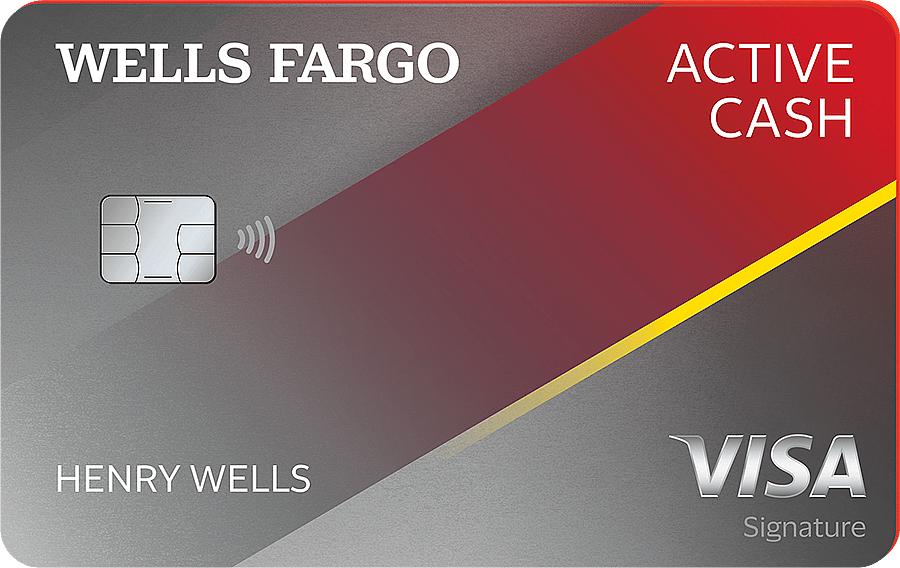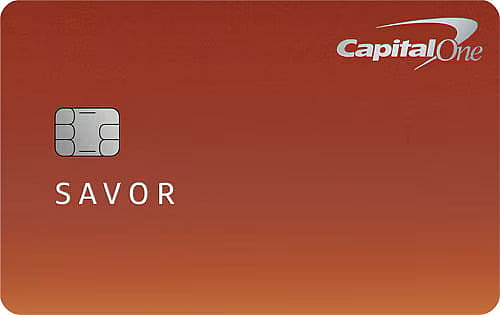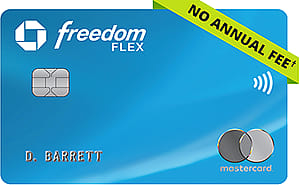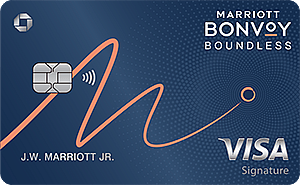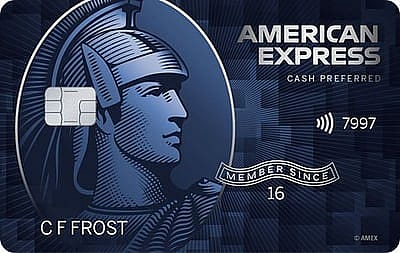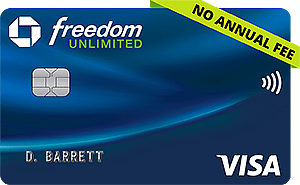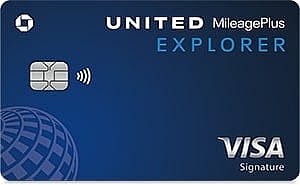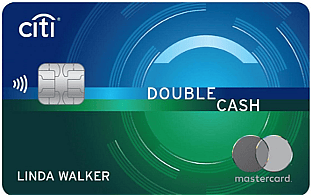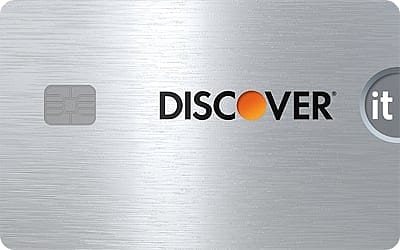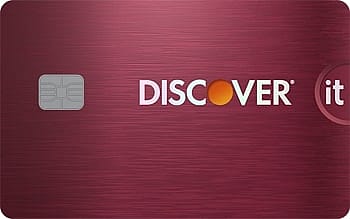12 Best Rewards Credit Cards of March 2026
Many or all of the products on this page are from partners who compensate us when you click to or take an action on their website, but this does not influence our evaluations or ratings. Our opinions are our own.
Many or all of the products on this page are from partners who compensate us when you click to or take an action on their website, but this does not influence our evaluations or ratings. Our opinions are our own.
Rewards credit cards come in two main varieties. Cash-back cards pay you back a percentage of each transaction. Travel rewards cards give you points or miles you can redeem for free flights, hotel stays and more. The right rewards credit card for you is all about how you spend money and what kind of rewards you value.
| Credit card | Rating | Annual fee | Rewards rate | Intro offer | Learn more |
|---|---|---|---|---|---|
2026 Best all-purpose cash back credit card Apply Nowon Wells Fargo's website on Wells Fargo's website | Best for Flat-rate cash back | $0 | 2% | $200 | Apply Nowon Wells Fargo's website on Wells Fargo's website |
Apply Nowon Capital One's website on Capital One's website | Best for Simple travel rewards | $95 | 2x-5x | $250 Travel Credit + Earn 75K Bonus Miles | Apply Nowon Capital One's website on Capital One's website |
2026 Best credit card for dining Apply Nowon Capital One's website on Capital One's website | Best for Going out & staying in | $0 | 1%-8% | $200 | Apply Nowon Capital One's website on Capital One's website |
Apply Nowon Chase's website on Chase's website | Best for Quarterly categories + cash bonus | $0 | 1%-5% | $200 | Apply Nowon Chase's website on Chase's website |
2026 Best hotel credit card Apply Nowon Chase's website on Chase's website | Best for Hotel credit card | $95 | 2x-17x | 5 Free Night Awards | Apply Nowon Chase's website on Chase's website |
2026 Best credit card for groceries Apply Nowon American Express' website on American Express' website | Best for Families & households | $0 intro annual fee for the first year, then $95. | 1%-6% | As High as $300 cash back. Find Out Your Offer. | Apply Nowon American Express' website on American Express' website |
2026 Best all-purpose travel rewards credit card Apply Nowon Chase's website on Chase's website | Best for Bonus travel rewards | $95 | 1x-5x | 75,000 points | Apply Nowon Chase's website on Chase's website |
Apply Nowon Chase's website on Chase's website | Best for All-around cash back | $0 | 1.5%-5% | $200 | Apply Nowon Chase's website on Chase's website |
2026 Best airline credit card Apply Nowon Chase's website on Chase's website | Best for Airline card | $0 intro for the first year, then $150 | 1x-2x | 70,000 miles | Apply Nowon Chase's website on Chase's website |
Apply Nowon Citibank's application on Citibank's application | Best for Simplicity + high rate | $0 | 2%-5% | $200 | Apply Nowon Citibank's application on Citibank's application |
2026 Best credit card for college students Apply Nowon Discover's website, on Discover's website, or call 800-347-0264 | Best for College students | $0 | 1%-2% | Cashback Match™ | Apply Nowon Discover's website, on Discover's website, or call 800-347-0264 |
Apply Nowon Discover's website, on Discover's website, or call 800-347-0264 | Best for Quarterly categories + matching bonus | $0 | 1%-5% | Cashback Match™ | Apply Nowon Discover's website, on Discover's website, or call 800-347-0264 |
2026 Best all-purpose cash back credit card
Apply Nowon Wells Fargo's websiteon Wells Fargo's websiteAnnual fee$0Rewards rate2%CashbackIntro offer$200Recommended credit scorePurchase intro APR0% intro APR for 12 months from account opening on purchasesBalance transfer intro APR0% intro APR for 12 months from account opening on qualifying balance transfersRegular APR18.49%, 24.49%, or 28.49% Variable APRRewards breakdown
2%Unlimited Cash rewards on purchases.Card details
- Apply Now to take advantage of this offer and learn more about product features, terms and conditions.
- Earn a $200 cash rewards bonus after spending $500 in purchases in the first 3 months.
- Earn unlimited 2% cash rewards on purchases.
- 0% intro APR for 12 months from account opening on purchases and qualifying balance transfers. 18.49%, 24.49%, or 28.49% variable APR thereafter; balance transfers made within 120 days qualify for the intro rate and fee of 3% then a BT fee of up to 5%, min: $5.
- $0 annual fee.
- No categories to track or remember and cash rewards don’t expire as long as your account remains open.
- Find tickets to top sports and entertainment events, book travel, make dinner reservations and more with your complimentary 24/7 Visa Signature® Concierge.
- Up to $600 of cell phone protection against damage or theft. Subject to a $25 deductible.
- View Rates & Fees
NerdWallet's take
If you’re looking for a cash back card to use for everything — or a card to use for “everything else” in a multicard setup — it’s hard to go wrong with the Wells Fargo Active Cash® Card.
Read full reviewProsRewards type: Cash back.
Earning rate: 2% cash back on all purchases. That’s about the best you can do for unlimited flat-rate cash back without paying a fee.
No categories or spending limits to keep track of.
The bonus offer is competitive: Earn a $200 cash rewards bonus after spending $500 in purchases in the first 3 months.
Decent 0% intro APR period.
$0 annual fee.
Cell phone protection.
ConsThis card is ideal for those who like to keep things simple, but you can find significantly higher cash-back rates in specific categories if you're OK with managing multiple cards.
Many competing cash-back cards offer a longer intro APR period, if you’ve got a large purchase you need to finance.
There's a foreign transaction fee.
- Bigger bonus offerWhy this card stands out
For a limited time, the Capital One Venture Rewards Credit Card is offering new cardholders an especially rich two-part bonus worth $1,000 in travel. First, there's a $250 credit to use on Capital One Travel in the first cardholder year. Plus, you can earn 75,000 bonus miles once you spend $4,000 on purchases in the first three months you have the card.
Our pick for: Simple travel rewards
Apply Nowon Capital One's websiteon Capital One's websiteAnnual fee$95Rewards rate2x-5xMilesIntro offer$250 Travel Credit + Earn 75K Bonus MilesRegular APR19.49%-28.49% Variable APRRecommended credit scoreRewards breakdown
5xEarn 5X miles on hotels, vacation rentals and rental cars booked through Capital One Travel.2xMiles on every purchase, every day.Card details
- LIMITED-TIME OFFER: Enjoy $250 to use on Capital One Travel in your first cardholder year, plus earn 75,000 bonus miles once you spend $4,000 on purchases within the first 3 months from account opening - that’s equal to $1,000 in travel
- Earn unlimited 2X miles on every purchase, every day
- Earn 5X miles on hotels, vacation rentals and rental cars booked through Capital One Travel
- Miles won't expire for the life of the account and there's no limit to how many you can earn
- Receive up to a $120 credit for Global Entry or TSA PreCheck®
- Use your miles to get reimbursed for any travel purchase—or redeem by booking a trip through Capital One Travel
- Enjoy a $50 experience credit and other premium benefits with every hotel and vacation rental booked from the Lifestyle Collection
- Transfer your miles to your choice of 15+ travel loyalty programs
- Top rated mobile app
- View Rates & Fees
NerdWallet's take
Easy-to-earn, easy-to-redeem rewards have rightly made the Capital One Venture Rewards Credit Card one of the best-loved travel credit cards on the market. If you like the idea of travel rewards, but the details make your head spin, this card is a great way to get started.
Read full reviewProsRewards type: Travel points (Capital One refers to them as "miles").
Earning rates: Unlimited 2 miles per dollar spent on purchases, plus 5 miles per dollar on hotels, vacation rentals and car rentals booked through Capital One Travel.
Miles can be redeemed to pay for travel purchases. You’re not restricted to any particular airline or hotel, and there’s no minimum amount required to redeem. Just book your own travel, then pay for it with rewards. Miles can also be used to book travel directly through Capital One (NerdWallet calculates that they are worth 1 cent per mile for these redemptions.)
Strong bonus offer for new cardholders.
Credit for the application fee for TSA PreCheck or Global Entry.
No foreign transaction fees.
ConsBudget travelers will want to note the $95 annual fee. It can be well worth it, but there are no-annual-fee cards that offer similar simplicity (although with lower rewards rates).
If you're loyal to a particular airline or hotel chain, you may get more value and dedicated perks from one of that brand's own cards.
This card allows you to transfer miles to several airline and hotel loyalty programs, but the options aren't the strongest.
2026 Best credit card for dining
Apply Nowon Capital One's websiteon Capital One's websiteAnnual fee$0Rewards rate1%-8%CashbackIntro offer$200Recommended credit scorePurchase intro APR0% intro on purchases for 12 monthsBalance transfer intro APR0% intro on balance transfers for 12 months; balance transfer fee appliesRegular APR18.49%-28.49% Variable APRRewards breakdown
8%Cash back on Capital One Entertainment purchases.5%Cash back on hotels, vacation rentals and rental cars booked through Capital One Travel.3%Cash back on dining.3%Cash back on entertainment.3%Cash back on popular streaming services.3%Cash back at grocery stores (excluding superstores like Walmart® and Target®).1%Cash back on all other purchases.Card details
- Earn a one-time $200 cash bonus once you spend $500 on purchases within the first 3 months from account opening
- $0 annual fee and no foreign transaction fees
- Earn unlimited 3% cash back at grocery stores (excluding superstores like Walmart® and Target®), on dining, entertainment and popular streaming services, plus 1% on all other purchases
- Earn 8% cash back on Capital One Entertainment purchases
- Earn unlimited 5% cash back on hotels, vacation rentals and rental cars booked through Capital One Travel
- No rotating categories or sign-ups needed to earn cash rewards; plus cash back won't expire for the life of the account and there's no limit to how much you can earn
- 0% intro APR on purchases and balance transfers for 12 months; 18.49% - 28.49% variable APR after that; balance transfer fee applies
- Top rated mobile app
- View Rates & Fees
NerdWallet's take
The Capital One Savor Cash Rewards Credit Card offers an irresistible (and hard-to-find) combination: high cash-back rates at restaurants AND at grocery stores, as well as on a broad range of entertainment options, all for an annual fee of $0.
Read full reviewProsRewards type: Cash back.
Earning rates: 3% cash back on dining, at grocery stores, on entertainment, and on eligible streaming services; 8% on Capital One Entertainment purchases; other purchases earn 1%.
No spending caps on bonus category rewards.
Good bonus offer: Earn a one-time $200 cash bonus once you spend $500 on purchases within the first 3 months from account opening.
0% intro APR period.
No foreign transaction fees.
$0 annual fee.
ConsIf your food spending is focused specifically on either dining OR groceries, a different card with a higher rewards rate in one of those categories may be a better fit.
Our pick for: Quarterly categories + cash bonus
Apply Nowon Chase's websiteon Chase's websiteAnnual fee$0Rewards rate1%-5%CashbackIntro offer$200Recommended credit scorePurchase intro APR0% intro APR on purchases for 15 monthsBalance transfer intro APR0% intro APR on balance transfers for 15 monthsRegular APR18.24%-27.74% Variable APRRewards breakdown
5%Cash back on up to $1,500 in combined purchases in bonus categories each quarter you activate.5%Cash back on travel purchased through Chase Travel℠.3%Cash back on dining.3%Cash back at drugstores.1%Cash back on all other purchases.Card details
- Earn a $200 Bonus after you spend $500 on purchases in your first 3 months from account opening
- 5% cash back on up to $1,500 in combined purchases in bonus categories each quarter you activate. Enjoy new 5% categories each quarter!
- 5% cash back on travel purchased through Chase Travel℠, our premier rewards program that lets you redeem rewards for cash back, travel, gift cards and more
- 3% cash back on drugstore purchases and dining at restaurants, including takeout and eligible delivery service, and unlimited 1% cash back on all other purchases.
- No minimum to redeem for cash back. You can use points to redeem for cash through an account statement credit or an electronic deposit into an eligible Chase account located in the United States.
- 0% Intro APR for 15 months from account opening on purchases and balance transfers, then a variable APR of 18.24% - 27.74%.
- No annual fee – You won't have to pay an annual fee for all the great features that come with your Freedom Flex® card
- Keep tabs on your credit health - Chase Credit Journey helps you monitor your credit with free access to your latest score, real-time alerts, and more.
- Member FDIC
- View Rates & Fees
NerdWallet's take
The Chase Freedom Flex® offers rewards as high as 5% cash back in specific categories (some that change quarterly and some that don't). If you're willing to put in a little work, it's one rich card.
Read full reviewProsRewards type: Cash back. (Technically, the rewards are paid as points, but they can be redeemed for cash back at 1 cent apiece.)
Earning rates: 5% cash back in bonus categories that change every three months (on up to $1,500 per quarter in spending, then 1%); 5% on travel booked through Chase; 3% at restaurants and drugstores; and 1% on other purchases.
Good bonus offer: Earn a $200 Bonus after you spend $500 on purchases in your first 3 months from account opening.
Lengthy 0% intro APR period.
$0 annual fee.
Rewards can be transferred to one of Chase’s Sapphire cards for greater redemption flexibility and potentially higher value.
ConsYou have to opt in to the bonus categories every quarter, which can be a hassle.
The rotating 5% categories have spending caps, and they might not be a good fit for everyone. In recent years, they've shifted a bit toward lower-spending areas.
This card charges foreign transaction fees.
2026 Best hotel credit card
Apply Nowon Chase's websiteon Chase's websiteAnnual fee$95Rewards rate2x-17xPointsIntro offer5 Free Night AwardsRegular APR19.24%-27.74% Variable APRRecommended credit scoreRewards breakdown
17xUp to 17x total points for every $1 spent at thousands of hotels participating in Marriott Bonvoy®.3xPoints per $1 on the first $6,000 spent in combined purchases annually on grocery stores, gas stations, and dining.2xPoints for every $1 spent on all other purchases.Card details
- Our best offer is back and better than ever! Earn 5 Free Night Awards (each night valued up to 50,000 points) after qualifying purchases.
- 2026 Exclusive Offer: Get up to $100 in statement credits after spending $500 on eligible airline purchases. That's up to $50 in statement credits semi-annually.
- Earn 3X points per $1 on the first $6,000 spent in combined purchases annually on grocery stores, gas stations, and dining.
- Earn 1 Elite Night Credit towards Elite Status for every $5,000 you spend.
- 1 Free Night Award (valued up to 35,000 points) every year after account anniversary.
- Earn up to 17X total points per $1 spent at thousands of hotels participating in Marriott Bonvoy® with the Marriott Bonvoy Boundless® Card.
- Receive 15 Elite Night Credits annually, automatic Silver Elite status, and path to Gold Status when you spend $35,000 on purchases each calendar year.
- No Foreign Transaction Fees. Your points don't expire as long as you make purchases on your card every 24 months.
- Member FDIC
- View Rates & Fees
NerdWallet's take
The Marriott Bonvoy Boundless® Credit Card is a solid card for both occasional and regular travelers, with benefits — especially a free night every year — that easily make up for its annual fee. (Not a Marriott customer? See our best hotel cards for other options.)
Read full reviewProsRewards type: Hotel points.
Earning rates: 6 points per $1 spent at participating Marriott Bonvoy hotels (on top of the points you earn for being a Bonvoy member); 3 points per $1 on grocery store, gas station and dining purchases (on up to $6,000 in combined purchases in those categories each year); and 2 points per $1 on other spending.
Free night award after every account anniversary.
Great bonus offer.
Automatic Silver Elite status and accelerated path to Gold status.
Marriott has a huge footprint with a wide selection of brands and locations, giving you great flexibility in how you use their points. Points can also be transferred to several airline partners.
ConsAs with most branded hotel or airline credit cards, the rewards aren't as flexible for redeeming as those on general travel cards.
Although the benefits can easily make up for the annual fee, that's still an out-of-pocket cost.
2026 Best credit card for groceries
Apply Nowon American Express' websiteon American Express' websiteAnnual fee$0 intro annual fee for the first year, then $95.Rewards rate1%-6%CashbackIntro offerAs High as $300 cash back. Find Out Your Offer.Recommended creditPurchase intro APR0% intro APR on purchases for 12 months from the date of account openingBalance transfer intro APR0% intro APR on balance transfers for 12 months from the date of account openingAPR19.49%-28.49% Variable APRRewards breakdown
6%Cash Back at U.S. supermarkets on up to $6,000 per year in purchases (then 1%).6%Cash Back on select U.S. streaming subscriptions.3%Cash Back at U.S. gas stations and on transit (including taxis/rideshare, parking, tolls, trains, buses and more).1%Cash Back on other purchases.Card details
- Apply and find out your welcome offer. As High As $300 cash back* after you spend $3,000 in purchases on your new Card within the first 6 months of Card Membership. Welcome offers vary and you may not be eligible for an offer. Apply, and if approved: 1. Find out your offer amount 2. Accept the Card with your offer 3. Spend $3,000 in 6 months 4. Receive the cash back. *Cash back is received in the form of Reward Dollars that can be redeemed for a statement credit or at Amazon.com checkout.
- $0 intro annual fee for the first year, then $95.
- Enjoy 0% intro APR on purchases and balance transfers for 12 months from the date of account opening. After that, your APR will be a variable APR of 19.49%-28.49%.
- Plan It®: Buy now, pay later with Plan It. Split purchases of $100 or more into equal monthly installments with a fixed fee so you don’t have the pressure of paying all at once. Simply select the purchase in your online account or the American Express® App to see your plan options. Plus, you’ll still earn rewards on purchases the way you usually do.
- Earn 6% cash back at U.S. supermarkets on up to $6,000 per year in eligible purchases (then 1%), 6% cash back on select U.S. streaming subscriptions, 3% cash back at eligible U.S. gas stations and on transit (including taxis/rideshare, parking, tolls, trains, buses and more) purchases and 1% cash back on other purchases. Cash Back is received in the form of Reward Dollars that can be redeemed as a statement credit and at Amazon.com checkout.
- Get up to a $10 monthly statement credit after using your enrolled Blue Cash Preferred® Card for a subscription purchase, including a bundle subscription purchase, at DisneyPlus.com, Hulu.com, or Stream.ESPN.com U.S. websites. Subject to auto-renewal.
- Terms Apply.
- View Rates & Fees
NerdWallet's take
The Blue Cash Preferred® Card from American Express earns stellar rewards — up to 6% cash back in everyday categories — that can easily make its annual fee worth paying for households that spend a lot on groceries, gas, streaming and commuting.
Read full reviewProsRewards type: Cash back (received in the form of Reward Dollars that can be redeemed as a statement credit or at Amazon.com checkout).
Earning rates: 6% cash back at U.S. supermarkets, on up to $6,000 a year in spending (then 1%); 6% on select U.S. streaming subscriptions; 3% at U.S. gas stations; 3% on transit, including such things as taxis, rideshares, parking, tolls, trains and buses; and 1% on other purchases.
The welcome offer can take some of the sting out of the fee: You may be eligible for as high as $300 cash back after spending $3,000 in purchases on your new Card in the first 6 months. Welcome offers vary and you may not be eligible for an offer. Cash back is received as Reward Dollars, redeemable for statement credit or at Amazon.com checkout. Terms Apply.
You get a decent intro APR offer.
Terms apply.
ConsThe annual fee will be a sticking point for some: $0 intro annual fee for the first year, then $95. But rewards offset the fee with just $31 a week in supermarket spending. And some cardholders may be able to cover the fee just with the streaming benefits.
Several competing cash back cards offer a longer intro APR period.
2026 Best all-purpose travel rewards credit card
Apply Nowon Chase's websiteon Chase's websiteAnnual fee$95Rewards rate1x-5xPointsIntro offer75,000pointsRegular APR19.24%-27.49% Variable APRRecommended credit scoreRewards breakdown
5xPoints on travel purchased through Chase Travel℠.3xPoints on dining.3xPoints on select streaming services.3xPoints on online groceries.2xPoints on all other travel purchases.1xPoint on all other purchases.Card details
- Earn 75,000 bonus points after you spend $5,000 on purchases in the first 3 months from account opening.
- Enjoy benefits such as 5x on travel purchased through Chase Travel℠, 3x on dining, select streaming services and online groceries, 2x on all other travel purchases, 1x on all other purchases
- Earn up to $50 in statement credits each account anniversary year for hotel stays through Chase Travel℠
- 10% anniversary points boost - each account anniversary you'll earn bonus points equal to 10% of your total purchases made the previous year.
- Count on Trip Cancellation/Interruption Insurance, Auto Rental Collision Damage Waiver, Lost Luggage Insurance and more.
- Complimentary DashPass which unlocks $0 delivery fees & lower service fees for a min. of one year when you activate by 12/31/27. Plus, a $10 promo each month on non-restaurant orders.
- Member FDIC
- View Rates & Fees
NerdWallet's take
The Chase Sapphire Preferred® Card is one of the most widely held travel credit cards for a reason: It provides outstanding value and flexibility — including the option of transferring your rewards to popular airline and hotel loyalty programs — for a reasonable annual fee.
Read full reviewProsRewards type: Travel points.
Earning rates: 5 points per $1 spent on travel purchased through Chase. 3 points per $1 on dining (including eligible delivery services and takeout), select streaming services, and online grocery purchases (not including Target, Walmart and wholesale clubs). 2 points per $1 on travel not booked through Chase. 1 point per $1 on other purchases. Through September 2027: 5 points per $1 spent on Lyft.
Points are worth more when you redeem them for travel booked through Chase.
Points can also be transferred to more than a dozen hotel and airline programs, including United, Southwest, Marriott and Hyatt.
Superb bonus offer for new cardholders.
$50 annual credit on hotel stays purchased through Chase.
Annual anniversary points bonus.
Primary rental car coverage.
No foreign transaction fees.
ConsThere's a $95 annual fee. That can be a bargain given all the value packed into the card, but fees might be a turn-off for casual travelers.
The rewards you earn on spending are valuable, but if it's perks you're looking for — for example, free checked bags on flights, free hotel upgrades or airport lounge access — look to a branded airline or hotel card or this card's premium sibling, the Chase Sapphire Reserve®.
Our pick for: All-around cash back
Apply Nowon Chase's websiteon Chase's websiteAnnual fee$0Rewards rate1.5%-5%CashbackIntro offer$200Recommended credit scorePurchase intro APR0% intro APR on purchases for 15 monthsBalance transfer intro APR0% intro APR on balance transfers for 15 monthsRegular APR18.24%-27.74% Variable APRRewards breakdown
5%Cash back on travel purchased through Chase Travel℠.3%Cash back on drugstore purchases.3%Cash back on dining at restaurants, including takeout and eligible delivery services.1.5%Cash back on all other purchases.Card details
- Earn a $200 Bonus after you spend $500 on purchases in your first 3 months from account opening
- Enjoy 5% cash back on travel purchased through Chase Travel℠, our premier rewards program that lets you redeem rewards for cash back, travel, gift cards and more; 3% cash back on drugstore purchases and dining at restaurants, including takeout and eligible delivery service, and 1.5% on all other purchases.
- No minimum to redeem for cash back. You can use points to redeem for cash through an account statement credit or an electronic deposit into an eligible Chase account located in the United States!
- Enjoy 0% Intro APR for 15 months from account opening on purchases and balance transfers, then a variable APR of 18.24% - 27.74%.
- No annual fee – You won't have to pay an annual fee for all the great features that come with your Freedom Unlimited® card
- Keep tabs on your credit health, Chase Credit Journey helps you monitor your credit with free access to your latest score, alerts, and more.
- Member FDIC
- View Rates & Fees
NerdWallet's take
The Chase Freedom Unlimited® is the rare cash back credit card that doesn't just have strong bonus categories — in this case, restaurants, drugstores and travel booked through Chase — but also pays more than 1% on purchases outside those categories.
Read full reviewProsRewards type: Cash back. (Technically, the rewards are paid as points, but they can be redeemed for cash back at 1 cent apiece.)
Earning rates: 5% cash back on travel booked through Chase; 3% at restaurants and drugstores; and 1.5% on other purchases.
No spending caps on bonus categories.
Solid bonus offer: Earn a $200 Bonus after you spend $500 on purchases in your first 3 months from account opening.
Good 0% intro APR period on purchases and balance transfers.
$0 annual fee.
Rewards can be transferred to one of Chase’s Sapphire cards for greater redemption flexibility and potentially higher value.
ConsWhile you can earn big rewards on travel bookings with this card, it also charges a 3% foreign transaction fee, so it's not a good companion abroad.
2026 Best airline credit card
Apply Nowon Chase's websiteon Chase's websiteAnnual fee$0 intro for the first year, then $150Rewards rate1x-2xMilesIntro offer70,000milesRegular APR19.74%-28.24% Variable APRRecommended credit scoreRewards breakdown
2xMiles on United® purchases2xMiles per $1 spent on dining.2xMiles per $1 spent on hotel stays when booked with the hotel.1xMile per $1 spent on all other purchases.Card details
- Earn 70,000 bonus miles
- $0 introductory annual fee for the first year, then $150
- 2x miles on United® purchases, dining, and hotel stays when booked with the hotel
- Free first checked bag - a savings of up to $160 per roundtrip. Terms Apply.
- Priority boarding on United® flights
- 2 United Club one-time passes per year - over a $100 value
- Over $500 in partner credits each year
- Up to $120 Global Entry, TSA PreCheck® or NEXUS fee credit
- Member FDIC
- View Rates & Fees
NerdWallet's take
United℠ Explorer Card delivers terrific value, with several perks not offered by other airline cards in its price range. If you fly United regularly — or have the option to — it's a must. (United not an option? See our best airline cards for other picks.)
Read full reviewProsRewards type: Airline miles.
Earning rates: 2 miles per $1 spent on United purchases, at restaurants and on hotel stays; 1 mile per $1 on other purchases.
Bonus offer: Earn 70,000 bonus miles after you spend $3,000 on purchases in the first 3 months your account is open.
First checked bag free for you and a companion. (Savings on bag fees can pay for the card with a couple of trips a year.)
Priority boarding.
Two one-time passes to United Club airport lounges each year.
Reimbursement for the application fee for TSA PreCheck or Global Entry.
Primary rental car coverage.
ConsRegular travelers should be able to derive more than enough value to justify the annual fee. But those who fly only occasionally should take a longer look.
Other cards provide a free checked bag for more people traveling on your reservation.
As with any branded airline card, you're limited in how you can redeem your rewards.
Our pick for: Simplicity + high rate
Apply Nowon Citibank's applicationon Citibank's applicationAnnual fee$0Rewards rate2%-5%CashbackIntro offer$200Recommended credit scoreBalance transfer intro APR0% intro APR on balance transfers for 18 monthsRegular APR17.49%-27.49% Variable APRRewards breakdown
2%Cash back on every purchase with unlimited 1% cash back when you buy, plus an additional 1% as you pay for those purchases.Card details
- Earn $200 cash back after you spend $1,500 on purchases in the first 6 months of account opening. This bonus offer will be fulfilled as 20,000 ThankYou® Points, which can be redeemed for $200 cash back.
- Earn 2% on every purchase with unlimited 1% cash back when you buy, plus an additional 1% as you pay for those purchases. To earn cash back, pay at least the minimum due on time. Plus, earn 5% total cash back on hotel, car rentals and attractions booked with Citi Travel.
- Balance Transfer Only Offer: 0% intro APR on Balance Transfers for 18 months. After that, the variable APR will be 17.49% - 27.49%, based on your creditworthiness.
- Balance Transfers do not earn cash back. Intro APR does not apply to purchases.
- If you transfer a balance, interest will be charged on your purchases unless you pay your entire balance (including balance transfers) by the due date each month.
- There is an intro balance transfer fee of 3% of each transfer (minimum $5) completed within the first 4 months of account opening. After that, your fee will be 5% of each transfer (minimum $5).
- View Rates & Fees
NerdWallet's take
The Citi Double Cash® Card was one of the first cards to offer unlimited 2% cash back on all purchases (albeit with a twist), and it remains a favorite.
Read full reviewProsRewards type: Cash back. (Technically, the rewards are paid as points, but they can be redeemed for cash back at 1 cent apiece.)
Earning rate: 2% cash back on all purchases. The 2% comes in two parts: 1% when you make a purchase and another 1% when you pay it off. A little bit of complexity there, but nothing major.
No bonus categories to track or spending limits to deal with.
Good offer for new cardholders: Earn $200 cash back after you spend $1,500 on purchases in the first 6 months of account opening. This bonus offer will be fulfilled as 20,000 ThankYou® Points, which can be redeemed for $200 cash back.
$0 annual fee.
ConsThis card’s appeal lies in its simplicity. But if your spending is mostly concentrated in specific categories, you may be able to find higher rewards rates on other cards.
Unlike many cards in its class, this card has no 0% intro APR period for purchases. It does have a good balance transfer offer, though.
The card charges foreign transaction fees.
2026 Best credit card for college students
Apply Nowon Discover's website,on Discover's website, or call 800-347-0264Annual fee$0Rewards rate1%-2%CashbackIntro offerCashback Match™Recommended credit scorePurchase intro APR0% intro APR on purchases for 6 monthsBalance transfer intro APR10.99% intro APR on balance transfers for 6 monthsRegular APR16.49%-25.49% Variable APRRewards breakdown
2%Cash back at Gas stations on up to $1,000 in combined purchases each quarter, automatically.2%Cash back at Restaurants on up to $1,000 in combined purchases each quarter, automatically.1%Cash back on all other purchases.Card details
- INTRO OFFER: Unlimited Cashback Match for all new cardmembers – only from Discover. Discover will automatically match all the cash back you’ve earned at the end of your first year! There’s no minimum spending or maximum rewards. You could turn $50 cash back into $100. Or turn $100 cash back into $200.
- Earn 2% cash back at Gas Stations and Restaurants on up to $1,000 in combined purchases each quarter, automatically. You'll still earn unlimited 1% cash back on all other purchases.
- Redeem cash back for any amount
- No credit score required to apply.
- No annual fee and build credit with responsible use.
- 0% intro APR on purchases for 6 months, then the standard variable purchase APR of 16.49% - 25.49% applies.
- Terms and conditions apply.
- View Rates & Fees
NerdWallet's take
Discover offers two fine cards for college students. The Discover it® Student Chrome shines with its no-maintenance rewards structure, its student-friendly bonus categories and features tailor-made for those just getting started with credit.
Read full reviewProsRewards type: Cash back.
Earning rates: 2% cash back at restaurants and gas stations, on up to $1,000 in combined purchases per quarter, and 1% cash back on all other purchases. Discover also matches all the cash back you earn in your first year.
Unlike with Discover's other student card, you don't have to "activate" your bonus rewards. One less thing to keep track of.
$0 annual fee.
Free access to FICO credit score.
Forgiveness for first late payment.
Discover says there's no FICO history requirement to apply.
ConsAlthough there's no foreign transaction fee, Discover isn’t as widely accepted internationally as other cards. If you're going to be studying abroad, make sure you have a backup plan.
Our pick for: Quarterly categories + matching bonus
Apply Nowon Discover's website,on Discover's website, or call 800-347-0264Annual fee$0Rewards rate1%-5%CashbackIntro offerCashback Match™Recommended credit scorePurchase intro APR0% intro APR on purchases for 15 monthsBalance transfer intro APR0% intro APR on balance transfers for 15 monthsRegular APR17.49%-26.49% Variable APRRewards breakdown
5%Cash back on everyday purchases at different places you shop each quarter like grocery stores, restaurants, gas stations, and more, up to the quarterly maximum when you activate.1%Cash back on all other purchases.Card details
- INTRO OFFER: Unlimited Cashback Match for all new cardmembers. Discover will automatically match all the cash back you’ve earned at the end of your first year! There’s no minimum spending or maximum rewards. You could turn $150 cash back into $300.
- Earn 5% cash back on everyday purchases at different places you shop each quarter like grocery stores, restaurants, gas stations, and more, up to the quarterly maximum when you activate. Plus, earn unlimited 1% cash back on all other purchases.
- Redeem cash back for any amount. No annual fee.
- Get a 0% intro APR for 15 months on purchases. Then 17.49% to 26.49% Standard Variable Purchase APR applies, based on credit worthiness.
- Terms and conditions apply.
- View Rates & Fees
NerdWallet's take
Offering rich cash back rewards in common spending categories, as well as a bonus offer that gets more valuable the more you use the card in the first year, the Discover it® Cash Back does well as an everyday card or as one element in a multicard setup.
Read full reviewProsRewards type: Cash back.
Earning rates: 5% cash back in quarterly categories that you activate (on up to $1,500 per quarter in spending); 1% on other purchases (including spending above the cap in bonus categories).
Bonus categories regularly include big line items in many people's budgets: grocery stores, restaurants, gas stations and more.
Discover’s signature bonus offer for new cardholders matches all the cash back you earn in your first year, with no limit.
Solid introductory APR offer on purchases and balance transfers.
$0 annual fee.
ConsActivating the bonus categories each quarter can be a hassle. If you forget, you don't get 5%.
Bonus rewards are capped, and the bonus categories might not be a good fit for everyone.
You have to wait a year to collect your bonus.
International traveler? Discover doesn't charge foreign transaction fees, but its acceptance outside the U.S. is limited.
More about our picks: Best rewards credit cards
Capital One Venture Rewards Credit Card
Our pick for: Simple travel rewards
The Capital One Venture Rewards Credit Card is probably the best-known general-purpose travel credit card, thanks to its ubiquitous advertising. You earn 5 miles per dollar on hotels, vacation rentals and rental cars booked through Capital One Travel and 2 miles per dollar on all other purchases. Miles can be redeemed at a value of 1 cent apiece for any travel purchase, without the blackout dates and other restrictions of branded hotel and airline cards. The card offers a great sign-up bonus and other worthwhile perks (see rates and fees). Read our review.
Chase Sapphire Preferred® Card
Our pick for: Bonus travel rewards
For a reasonable annual fee, the Chase Sapphire Preferred® Card earns bonus rewards on travel, dining, select streaming services, and select online grocery purchases. Points are potentially worth more when you redeem them for travel booked through Chase, or you can transfer them to about a dozen airline and hotel partners. The sign-up bonus is stellar, too. Read our review.
Wells Fargo Active Cash® Card
Our pick for: Flat-rate cash back
Among flat-rate cash-back cards, you'll be hard-pressed to beat the Wells Fargo Active Cash® Card. It earns an unlimited 2% back on all purchases, which is excellent. But in addition, the card offers a rich sign-up bonus and a decent intro APR period on both purchases and balance transfers. That's an impressive, hard-to-find combination of features on a card with a $0 annual fee. Read our review.
Citi Double Cash® Card
Our pick for: Simplicity + high rate
Year after year, the Citi Double Cash® Card has been a top choice among flat-rate cash-back cards. You earn 2% cash back on every purchase — 1% when you buy something and 1% when you pay it off. There's no 0% intro period for purchases and no bonus categories, but the high rewards rate more than makes up for the lack of bells and whistles. Read our review.
Blue Cash Preferred® Card from American Express
Our pick for: Families and households
If your household spends a lot on groceries, gas, transit and streaming, the Blue Cash Preferred® Card from American Express is for you. The rewards it pays in those categories — particularly at U.S. supermarkets and on select U.S. streaming subscriptions — are among the richest of any card. There's a nice welcome offer for new cardholders and an introductory APR period, too. The generous benefits come at a cost, though: Unlike most cash-back cards, this one charges an annual fee. Terms apply. Read our review.
Capital One Savor Cash Rewards Credit Card
Our pick for: Going out & Staying in
Some credit cards reward you well for going out, others for staying in. The Capital One Savor Cash Rewards Credit Card is the rare card that does both. It offers a terrific cash-back rate not only on dining and entertainment but also at grocery stores and on popular streaming services. Toss in a good bonus offer and intro APR period, and this card is a winner. (see rates and fees). Read our review.
Discover it® Cash Back
Our pick for: Quarterly categories + matching bonus
The Discover it® Cash Back earns bonus cash back in quarterly categories that you activate. In past years, those categories have included common spending areas like grocery stores, restaurants, gas stations and specific major retailers. Category activation can be a hassle, but if your spending aligns with those categories (and for most households, it probably will), you can rake in serious rewards. You also get the issuer's signature "cash-back match" bonus in your first year. Read our review.
Chase Freedom Flex®
Our pick for: Quarterly categories + cash bonus
The Chase Freedom Flex® offers bonus cash back in quarterly categories that you activate, as well as on travel booked through Chase, at restaurants and at drugstores. Category activation can be a hassle, but if your spending matches the categories — and for a lot of people, it will — you can rack up hundreds of dollars a year. There's a fantastic bonus offer for new cardholders and an intro APR offer, too. Read our review.
Chase Freedom Unlimited®
Our pick for: All-around cash back
The Chase Freedom Unlimited® was already a fine card when it offered 1.5% cash back on all purchases. Now it's even better, with bonus rewards on travel booked through Chase, as well as at restaurants and drugstores. On top of all that, new cardholders get a 0% introductory APR period and the opportunity to earn a sweet bonus. Read our review.
Discover it® Student Chrome
Our pick for: College students
Simplicity makes the Discover it® Student Chrome a standout for students searching for their first credit card. You'll earn bonus cash back at restaurants and gas stations with no activation required and no rotating categories to keep track of. Read our review.
» The Discover it® Student Chrome was our selection as the top college student credit card in the most recent annual NerdWallet Best-Of Awards. For other options, see our best college student credit cards page.
United℠ Explorer Card
Our pick for: Best airline card
United℠ Explorer Card earns bonus rewards not only on spending with United Airlines but also at restaurants and on eligible hotel stays. And the perks are outstanding for a basic airline card — a free checked bag, priority boarding, lounge passes and more. Read our review.
» The United℠ Explorer Card was our selection as the top airline credit card in the most recent annual NerdWallet Best-Of Awards. If you're not (or can't be) a United flyer, find more options on our best airline credit cards page.
Marriott Bonvoy Boundless® Credit Card
Our pick for: Best hotel card
The Marriott Bonvoy Boundless® Credit Card is a worthwhile card whose benefits — especially a free night every year — can easily make up for its annual fee. Not only does Marriott have a wide selection of locations, both economy and upscale, but the card doesn't limit you to using points only for hotel stays. Read our review.
» The Marriott Bonvoy Boundless® Credit Card was our selection for the top hotel credit card in the most recent annual NerdWallet Best-Of Awards. If Marriott doesn't fit your travel style, find more options on our best hotel credit cards page.
Cash back or points/miles?
Cash back is the most flexible kind of credit card reward. With a cash back card, you earn rewards equal to a percentage of the amount you spend. Cash-back rates range from 1% to 6% — that is, 1 cent to 6 cents per dollar spent — depending on the card you use and where you use it. Your monthly statement will show you the rewards you've earned to date; you can also track your rewards online. This page features an assortment of top-rated cash back cards. For additional options, see our roundup of the best cash back credit cards.
» LEARN MORE: Cash back vs. travel rewards — how to choose
Points and miles earned on travel rewards cards can be redeemed for free travel — primarily flights and hotel stays. With a travel card, you earn a certain number of points for each dollar you spend — and that number can vary dramatically based on the card you use and what you're spending money on. Unlike with cash back cards, where 1 cent has the same value no matter which card you earn it on, the value of a point or mile depends on the loyalty program it's tied to and how you choose to redeem it. This page features a number of popular travel rewards cards. For additional options, see our roundup of the best travel credit cards.
» LEARN MORE: How much are points and miles worth?
Flat rate or bonus categories?
Once you settle on the type of credit card rewards you're after, you'll want to think about how you spend money. Credit cards generally dole out rewards in one of two ways:
Flat-rate cards pay the same rewards rate no matter what you're spending money on. The flat-rate model is especially popular among cash back cards, where a variety of options pay 1.5% or more on everything. The Wells Fargo Active Cash® Card, for example, pays an unlimited 2% cash back on all purchases. Flat-rate rewards are a little less common in travel cards but not unheard-of. The Capital One Venture Rewards Credit Card, for example, pays 2 miles per dollar on purchases (see rates and fees). Even on flat-rate travel cards, you'll usually earn extra rewards on travel bookings through the card issuer.
Bonus category cards pay higher rewards rates in specific categories and then a lower base rate (usually 1% cash back or 1 point per dollar spent) on everything else. Most popular travel rewards cards operate under the bonus category model. The Chase Sapphire Preferred® Card, for example, earns 2 to 5 points per dollar on travel, dining and some other categories and then 1 point per dollar outside those categories. Bonus categories are big among cash back cards, too. Some even have bonus categories that change periodically, that you can choose or that automatically adjust based on your spending. One caution: Many cash back cards (but certainly not all) limit how much spending is eligible for bonus category cash back.
If your spending is concentrated in a few key areas, you may be better off with a bonus rewards card that pays a high rate in those specific categories. If your spending is all over the map, a flat-rate card may be your best option. And if you don't mind putting in a little work, consider carrying multiple cards — one or more with bonus categories that align with your major spending areas, and a flat-rate card for everything else.
» LEARN MORE: Click below to see roundups of cards with bonus rewards in popular categories:
Annual fee or no?
Some people are dead-set against paying an annual fee on a credit card for any reason. Others are willing to pay a fee if the value they get back from the card exceeds the annual fee. Our advice is not to dismiss a card out of hand because it charges a fee. Do the math to see what you're getting for your money.
Most cash back cards do not charge an annual fee, but there are exceptions — particularly cards that deliver outsize value. Meanwhile, the most popular travel rewards credit cards do charge a fee. These cards tend to provide not only rewards (which is what you get for spending money with the card) but also perks (benefits you get for simply carrying the card). For example, most airline credit cards charge an annual fee — but if a card also gives you free checked bags, gets you into airport lounges and/or reimburses your application fee for TSA PreCheck, that fee might be a bargain.
» LEARN MORE: See the best cards with no annual fee, as well as the best travel cards with no annual fee
• • •
To view rates and fees of the Blue Cash Preferred® Card from American Express, see this page.
Frequently asked questions
How do rewards credit cards work?
There are two main types of rewards credit cards: cash-back cards and points/miles cards:
• With a cash-back credit card, the card issuer "pays you back" a certain percentage of every purchase. For example, if your card earns 1.5% cash back on all purchases and you buy something for $100, you would earn $1.50 in cash back.
• With a points or miles card, the issuer gives you a certain number of rewards points (often called “miles” on airline and travel credit cards) for each dollar you spend. How you use the points or miles depends on the card. Common redemption options include travel, gift cards and merchandise.
With most rewards cards, you can see your accumulated earnings on your monthly statement or through your online account portal, and you can decide when and how to redeem them.
What can I do with credit card rewards?
What you can do with your credit card rewards depends on the type of rewards you’ve earned and the card’s rules:
• Cash-back rewards are typically redeemable for a credit on your statement, which reduces your outstanding balance. You may also be able to have your rewards deposited into a bank account or sent as a check.
• Points or miles are most commonly redeemed for travel, but you may also be able to redeem them for gift cards, merchandise or cash back. For cards that carry the name of an airline or hotel brand, you typically use your rewards for free travel or upgrades. Some bank-branded credit cards let you transfer their points into airline or hotel programs.
How many credit card rewards points can I earn?
In most cases, there is no limit to how many points or miles or how much cash back you can earn with a credit card. Some cards do limit how much spending is eligible for bonus rewards — that is, higher rewards offered in specific categories — but after you hit that limit, you still earn rewards at the base rate. For example, a card might offer 3% rewards on up to $6,000 a year in spending and then 1% after that.
How much are credit card rewards points worth?
How much each point or mile is worth depends on the card that issued it and how you redeem it. As a very general rule of thumb, it’s helpful to think of points and miles as worth an average of 1 cent apiece, although you can certainly get a higher (or lower) value.
In some programs, points are worth 1 cent apiece regardless of how you redeem. In others, you might get 1 cent per point when redeeming for travel and 0.5 cents when redeeming for gift cards or cash back. Airline miles could be worth anywhere from less than 1 cent to more than 5 cents apiece depending on how many miles you need to earn a free flight and how much that flight would have cost if you were paying cash. Hotel points are similarly variable in value. See our points and miles valuation page for NerdWallet’s current values for airline miles and hotel points.
What credit score do I need to get a rewards credit card?
The best rewards credit cards typically require good to excellent credit for approval. However, there are some decent rewards-bearing cards for people with fair credit and even bad credit. Keep in mind that credit scores are only one factor in your application. Every issuer has its own criteria for approval.
Are credit card rewards taxable?
Typically, credit card rewards are not taxable. That's because the IRS generally considers credit card rewards to be discounts or rebates on purchases made with the card, not income.
Do credit card rewards expire?
Whether your credit card rewards expire depends on the card and the rewards program. In most cases, rewards do not expire as long as your account is active — meaning, you are using the card for purchases at least occasionally. Some programs require you to redeem your rewards within a certain time frame, but that's becoming more and more rare.
Is there a limit to the amount of rewards you can earn with a rewards credit card?
There is usually no limit to the rewards you can earn with a credit card. Some cards do limit how much spending is eligible for "bonus" rewards — that is, higher rewards for certain purchases — but after you hit that limit, you still earn rewards at the base rate. For example, a card might offer 2 points per dollar on up to $10,000 a year in spending and then 1 point per dollar after that. Or a card will offer 3% on groceries on up to $6,000 a year in spending, then 1% after that.
How do you redeem credit card rewards?
You can usually redeem rewards through your card issuer's website or app. In some cases, you may need to make a phone call, but that's rare.
Cash back can almost always be redeemed for a credit on your statement. So, for example, if your account has a balance of $200 and you redeem $30 in cash back, your balance would drop to $170. You may also be able to redeem cash back as a deposit into a bank account or even as a check mailed to you, but these options aren't always available. Some cards have a minimum redemption amount, like $20 or $25.
Airline miles and hotel points can be redeemed directly with the airline or hotel chain. Use these rewards to book flights or stays, or to pay for upgrades.
General-purpose credit card points — such as Chase Ultimate Rewards®, American Express Membership Rewards, Citi ThankYou Points, Bilt Points and so on — are typically the most flexible reward, although they can also be the most confusing. Depending on the program, you can redeem points to purchase travel through the card issuer's booking portal, redeem them for credit against travel spending or other purchases, transfer them to partner airline and hotel programs, redeem them as cash back, use them to pay for purchases at Amazon or other retailers, or something else.
Is it better to get cash back or travel rewards?
Whether cash back rewards or travel rewards are better for you depends entirely on your spending habits and your appetite for complexity. Cash back is the easiest kind of reward to manage — $1 is worth $1 no matter how you use it. So if you want the flexibility to use your rewards for anything without worrying about whether you're getting the "best deal," opt for cash back. With travel rewards, points sometimes have a fixed value (1 cent per point is common), but often the value you get from each point or mile often depends entirely on how you redeem it. You might get 1 cent worth of value per point, you might get a fraction of a cent, you might get multiple cents. Some people love the challenge of squeezing maximum value out of their rewards. See our points and miles valuation page for NerdWallet’s current assessment of how much these rewards should be worth. Learn more here: How to choose between cash back and travel rewards.
How we choose the best credit cards
Our team of credit card experts has developed a rigorous methodology to determine how much value a card delivers and how it stacks up against its competitors.
400+
Cards reviewed
400+
Cards reviewed
NerdWallet’s experts have reviewed more than 400 cards, from the most popular options at the biggest banks to store cards to niche cards from startups and small issuers.
8
Categories scored
8
Categories scored
Credit cards are so diverse that properly rating them with a single formula is impossible. We’ve built eight rubrics, plus variations, so we can score each card on what matters.
50+
Data points analyzed
50+
Data points analyzed
Our ratings consider not just a card’s rates, fees, rewards and perks, but also how easy or hard it is to get that card, manage it and enjoy its advertised benefits.
Star rating categories
What you want out of, say, a cash back credit card is fundamentally different from what you’re looking for in a balance transfer card or a card for building credit. That’s why we have different scoring models that put weight on different features.
Cash back cards
General travel cards
Balance transfer cards
Branded airline cards
Branded hotel cards
Credit builder cards
College student cards
Small business cards
NerdWallet's Credit Cards team selects the best rewards credit cards based on overall consumer value, as evidenced by star ratings, as well as their suitability for specific kinds of consumers, including both those seeking cash-back rewards and those interested in travel rewards. Factors in our evaluation include annual and other fees, rewards rates, the earning structure (for example, flat-rate rewards versus bonus categories), redemption options, bonus offers for new cardholders, introductory and ongoing APRs, and other noteworthy features such as airline or hotel perks or the ability to transfer points. Because different consumers can have markedly different needs, preferences and spending habits, we recognize that there is rarely a single credit card that is "best" for everyone. That's why this page includes a variety of options to suit an array of circumstances. Also, a single card is eligible to be chosen as among the "best" in multiple categories.
Our star ratings provide a quick way to compare credit cards. We assess the features of a card, score those features according to how they compare with other options on the market, and assign the card a rating of 1 to 5 stars based on those features. In general, a card that rates 4.5 stars will be a better value for more people than a card that rates 4.0 stars. However, the 4.0 card might be better than the 4.5 card for an individual consumer depending on that person’s circumstances. Further, ratings are only comparable within categories. If you're looking for rewards, for example, a 3.5-star cash back card will be of greater value than a 5.0-star balance transfer card or a 4.5-star credit-builder card. Star ratings are an important consideration in which cards appear on our "best" pages, but they are not the sole determining factor. Learn how NerdWallet rates credit cards.



